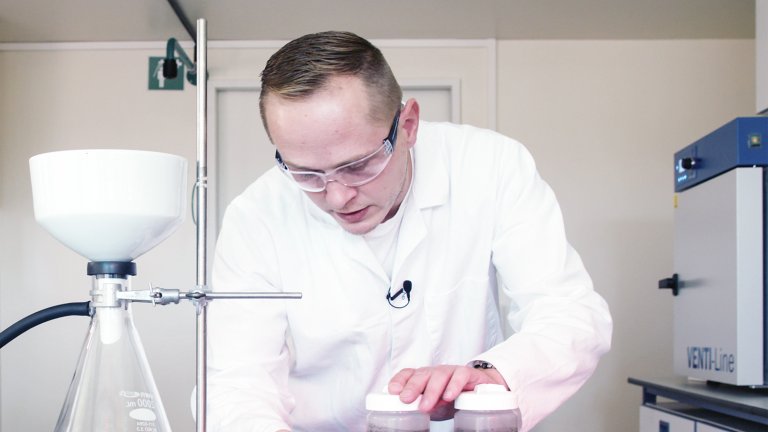
Biomass turned plastic
LXP Group GmbH is building a pilot plant for a cost-efficient production of bioplastics out of residual materials on an industrial scale. The company uses the lactic acid fermentation process based on lignocellulose obtained from plant residues.
A cost-efficient production of bioplastics out of residual materials
This spring, Katrin Streffer, CEO and co-founder of LXP Group GmbH, kicked off the construction of a pilot plant for a cost-efficient production of bioplastics out of residual materials. The plant will be operational at the beginning of the upcoming year and it will show that a cost-efficient production of bioplastics out of residual materials on an industrial scale is feasible.
From the laboratory into the pilot plant
Bioplastics, which are made of plant-based residual materials, have rarely been used because their production is still too expensive. Plastics made out of renewable raw materials, such as those based on sugar and starch, compete with the production of food. More sustainable, but far more complicated, is a production that is based on residual materials, for example from the agricultural sector. Bioplastics can unfold their full potential only when the material cycle is closed in this field.
The LXP Group is using a new extraction procedure to optimise lactic acid fermentation processes based on lignocellulose from plant residues. This is the first step towards synthesising biopolymers. The aim is to make full use of the energy stored within the starting materials so that no additional external energy has to be used during the procedure.
“We have proven that it can be done in the laboratory,” says the CTO and co-founder Friedrich Streffer. “Now we want to prove that our procedure works on a larger scale as well.” The lignin extraction (LX) pilot plant will cover an area of 200 square meters. This is about the size of three containers and their adjoining areas.
The state of Brandenburg is a pioneer
“The LX plant represents an important step towards the industrial production of bioplastics out of residual materials based on lactic acid (so-called 2G raw materials),” Streffer continued. These materials include, for example, scrap wood, agricultural waste and municipal waste. The LXP Group cooperates with the Leibniz Institute for Agricultural Engineering and Bioeconomy Potsdam and the Fraunhofer Institute for Applied Polymer Research in Potsdam.
In about five years, the production of biopolymers out of plant-based residual materials could be just as cost-efficient as the conventional production of plastics. The state of Brandenburg is very active when it comes to the research and development of biopolymers. The aim is to produce products with better environmental properties and to create new, highly qualified jobs in a decentralised manner.